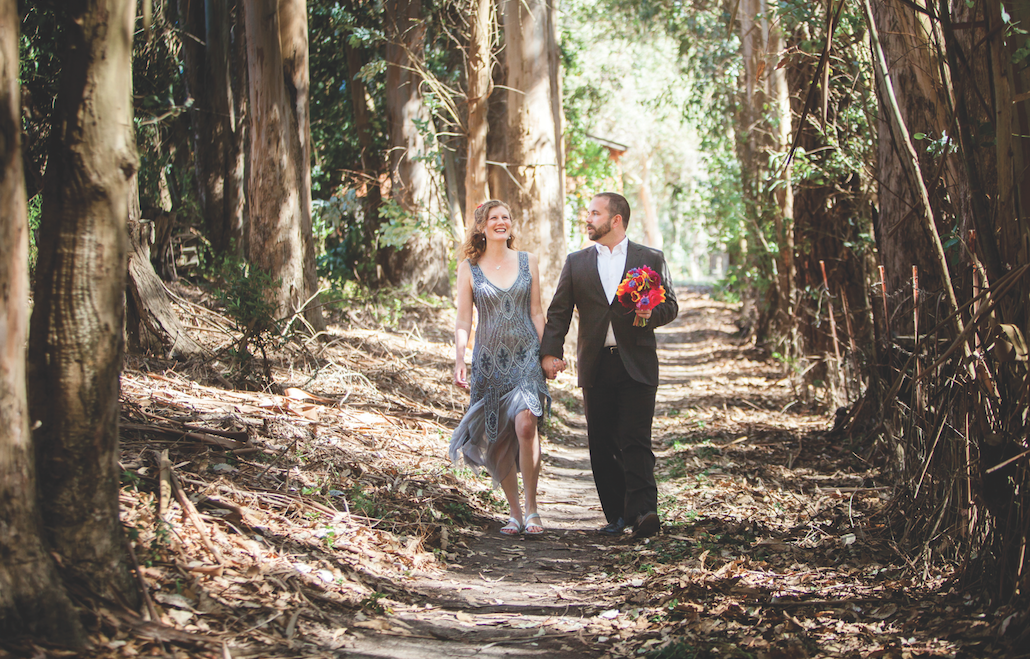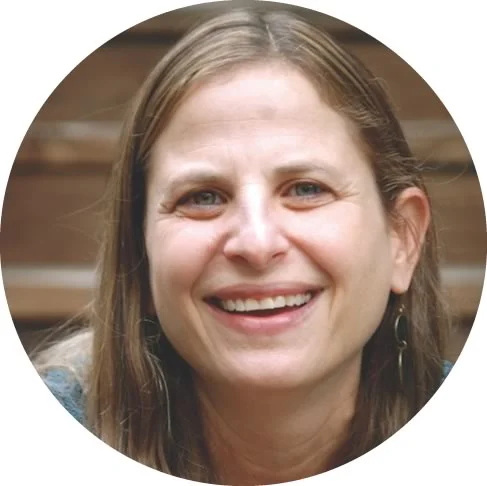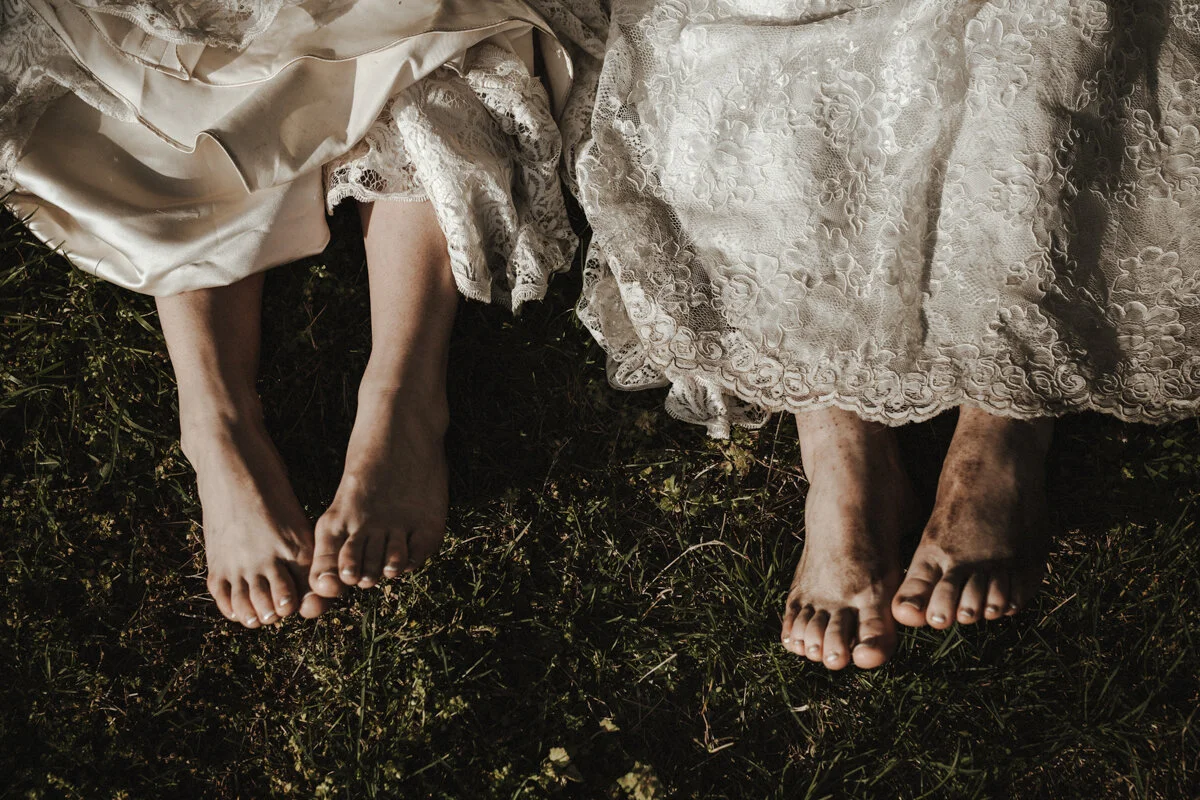One Ceremony, Centuries of Patriarchy
/Photo by Bernadette Pollard
Levana’s & Casey’s Theatrical Ceremony Explored a History of Weddings and Marriage
Levana Saxon and Casey Harrell were on a hike before their 2013 wedding when they got into a discussion about all the ideas they hold about marriage without even being conscious of them.
The thirty-something Oakland, California, couple works for social justice and environmental nonprofits, and they met when both were tapped by a high school student to come speak at an assembly about climate change. A colleague of Casey’s had said he would do it and then flaked, leaving Casey to do it instead. The chemistry was palpable between them during a phone call; when she hung up, Levana told her roommate, “I hope this guy is cute and single.”
In this conversation about marriage, Levana said she surprised herself by recognizing all kinds of unwanted messages she had internalized — things like “When I get married, I’ll get to be a whole woman.”
“It wasn’t conscious but it was operating on me in some nasty way,” she said.
Finally, Casey said “I can’t get married if we don’t publicly talk about this stuff.”
“That made me want to marry him all the more,” said Levana.
“I have a lot of fears that I want to be brutally honest about, and I may offend some people there who are married,” Casey told her.
Her response? “Let’s do it.”
The result was a ritual the night before their wedding they called “The History of Marriage: An Absurdist Theatrical Ceremony to Counter Heteronormative Patriarchy.”
It began with Casey on a crate that a friend had hastily scrawled “Soap” on.
He gave an impassioned speech about everything he found wrong with marriage. While Levana wasn’t planning on speaking during this part, she found that he missed a few things, so she added her thoughts.
“I mostly talked about how marriage is a privilege and the patriarchy is inherent in it” said Levana. “I knew by calling it out I wasn’t going to heal that, but I wanted it named and acknowledged.”
Our aim was to talk about what parts of weddings from the past and present we wanted to cast away and what we wanted to hold on to.
Then they enacted wedding ceremonies from three different eras — the 1700s, the 1950s, and the present — with costume changes for each. At the end of each ceremony, a certificate was handed to Levana that said: “You are now a full woman,” with an asterisk — the asterisk was “pending children.”
“Our aim was to talk about what parts of the past and present we wanted to cast away and what we wanted to hold on to,” Levana said.
Added Casey, “It’s amazing what you can get away with at your own wedding.”
While the couple stood at the faux-altar, friends held large “thought bubbles” behind them. One of Casey’s thought bubbles read, “Great. I get free labor out of this”; one of Levana’s read, “Finally, my virtue will be protected.”
Projected on a screen behind them were first drawings from the 1700s, and then advertisements from the 1950s and the present — most of them from the diamond industry, though one Prudential ad said “When a man marries, his future begins.”
The diamond ads, running from the 1950s to present, incorporated slogans like, “She won’t say no,” and “Of course there’s a return on your investment. We just can’t print it here.”
For the present-day ceremony, they poked fun at their own community. Levana explains, “A lot of us have divorced parents, so marriage for our generation can sometimes feel ridiculous and ironic. Sometimes when people get married, they think things like, ‘We don’t believe in this shit, but we’re doing it for our families and because it’s funny to do,’ so we were trying to convey that conflict of going through the motions of it.”
The couple ended the Absurdist Theatrical Ceremony by asking participants to call out the vision of marriage they’d like to see in the future, sharing sentiments like “I am complete and whole just as I am.”
Then guests wrote outdated notions about marriage on slips of paper and burned them. Traits they wanted to keep were written on paper hearts that were clipped onto a clothesline for the rest of the weekend.






















